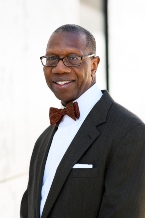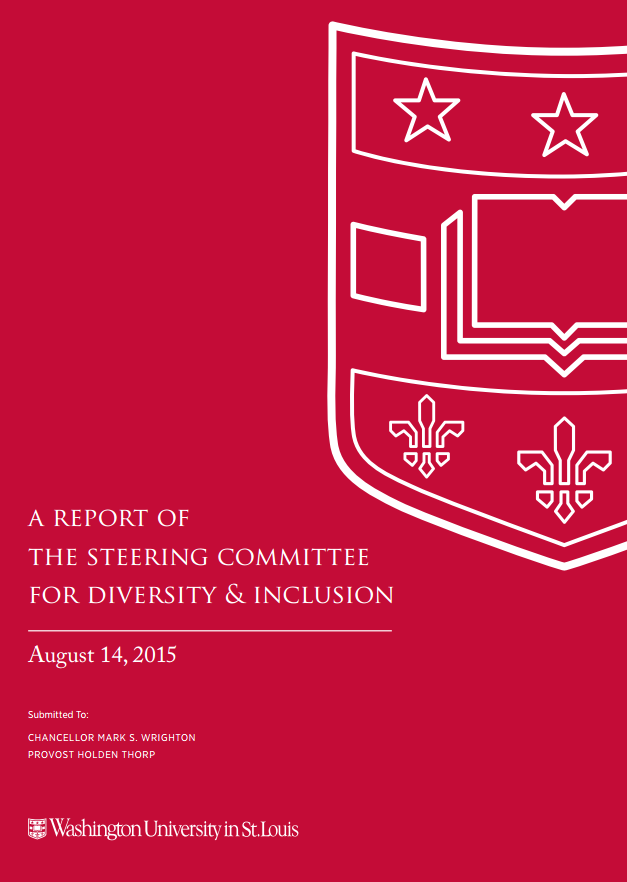
As civil unrest in response to the tragic killings of unarmed Black and Indigenous People of Color (BIPOC) continue to roil America, Universities and esteemed academic medical centers like ours are reflecting more on their role in promoting social justice. Institutions that are harboring doubt about stepping out in the turbulent waters of civic unrest should read former Harvard University President Drew Gilpin Faust’s 2009 essay on the University’s Crisis of Purpose, in which she extols the higher purpose of education in advancing society, particularly the uplift of the human condition. Washington University School of Medicine Professor Dr. Ken Ludmerer had offered a similar argument in his 2005 book Time to Heal, when he urged medical schools to uphold their social contract with the community they serve.
For Washington University School of Medicine, the current social unrest in our country serves as a stark reminder of the importance of continuing our longstanding and sincere commitment to building a culturally diverse community of faculty, students and staff and to maintaining our commitment to health equity and support of the BIPOC as well as LGBTQ community for which we are so well known.
Diversity and inclusion are core values of the School; we state them clearly in our mission statement, committing to conduct all our endeavors “in a culture that supports diversity, inclusion, critical thinking and creativity” and to “cultivate excellence and collegiality within an inclusive community.” Our vision statement goes further in affirming we will “apply advances in research and medicine to the betterment of the human condition locally and globally.”
Read a message from Dean Perlmutter »

For decades, a cornerstone of our diversity efforts has been to improve recruitment and retention of underrepresented minority faculty, residents, students and staff. We recognize that, in our missions of education, patient care and research, bringing together people from varied places, backgrounds and training is essential for success; diversity of thought and perspective provides richer solutions to the complex challenges of academic medicine. Today, the percentages of people of color among medical students is 20%, 11% among medical residents and fellows, and 6.5% within the faculty. We are equally pleased with the progress made in our Division of Biology and Biomedical Sciences, Physical Therapy, Occupational Therapy and Audiology. All of these numbers represent progress, but we continually strive to do better.
In addition, we actively seek to avoid racial isolation on our campus and to provide effective opportunities for culturally appropriate mentoring and networking.
See the 2017 Diversity Commission Report »
Toward that end, within the MD program, the Office of Minority Affairs was created in 1972 to promote diversity within medical education and to provide support for students throughout their tenure at the School of Medicine. In 1996 the Office of Diversity Programs was formed with the goal of recruiting underrepresented minorities and economically disadvantaged students and providing opportunities for all our students to develop the skills needed to attend to an ethnically and racially diverse patient population.
For many years, an introduction to health care in St. Louis, and a diversity retreat were a part of orientation for all medical students. More recently, diversity, social justice and community engagement have become embedded longitudinally through the new Gateway MD curriculum. Additionally, the medical school’s Office of Diversity, Equity, and Inclusion, has provided diversity, equity and inclusion training, assistance and resources to the faculty, staff, trainees and students of the School of Medicine.
Although St. Louis has its share of racial segregation and social disparities, Washington University benefits from its proximity to the Central West End neighborhood and the city of Clayton — both bastions of progressive thought and inclusion of those from diverse backgrounds. The university also has a healthy track record of engagement, mutual respect and partnership with the broader St. Louis region. Our students, residents and faculty are deeply involved in community service and thoughtful community partnerships. We “know” each other well.
The tragic deaths of teenager Michael Brown in August 2014, George Floyd on May 25, 2020, as well as many others in the BIPOC community, and the subsequent regional unrest was painful and challenging for the entire St. Louis region, including the Washington University community. Responding to widespread shock, anger and turmoil, university leaders have promoted institution-wide dialogue.
At the Danforth Campus and the School of Medicine, the chancellor, provost, dean and administrative deans actively participated in numerous open forums and town hall sessions to discuss race and cultural awareness. Those meetings were well attended and structured to allow respectful, meaningful conversations. The work continues through ongoing forums and the work of several committees.
None of the factors above can fully inoculate us from an adverse event of racial or cultural intolerance that could stir campus unrest. But we do have a long, sincere tradition of acknowledging challenges and responding with empathy, open dialogue and proactive leadership. All of that makes us strong.
We remain dedicated to ensuring that everyone feels welcome and celebrated as part of our campus community. Together, we all make a contribution to one of the best medical schools in the world.
Will Ross, MD, MPH
Associate Dean for Diversity
Professor of Medicine, Division of Nephrology
More from Dr. Ross
- COVID-19 and Black STL
Opinion piece published in the St. Louis American on COVID-19-related health disparities in the St. Louis - Message about George Floyd
How we can help each other through this tragic and traumatic period in our nation’s history - Finding hope in the era of populism
Dr. Ross’s thoughts on the 2016 election - A call of civility in in-civil times
Essay about police shootings of unarmed African American men